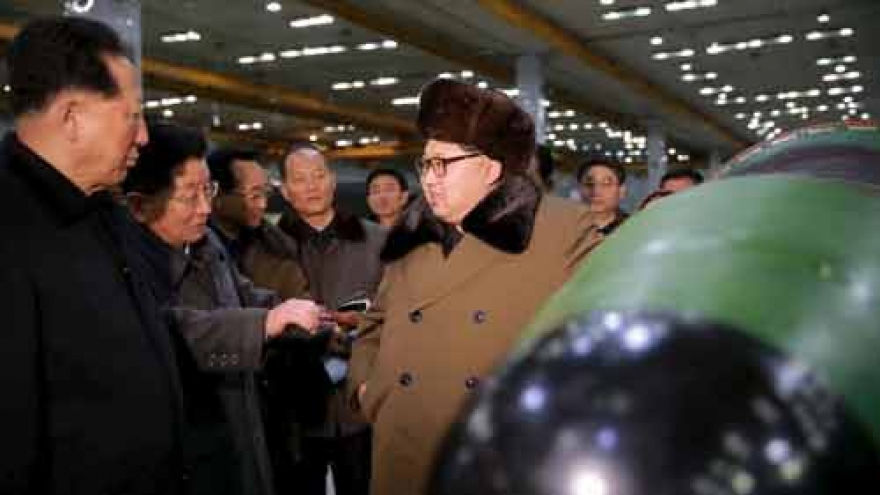DPRK leader says will soon test nuclear warhead
The Democratic People's Republic of Korea (DPRK) leader Kim Jong Un said his country would soon test a nuclear warhead and ballistic missiles capable of carrying nuclear warheads, DPRK's KCNA news agency reported on March 15.
The move would be a direct violation of U.N. resolutions that have the backing of Pyongyang's chief ally, China.
Kim made the comments as he supervised what KCNA said was a successful simulated test of atmospheric re-entry of a ballistic missile that measured the "thermodynamic structural stability of newly developed heat-resisting materials".
"Declaring that a nuclear warhead explosion test and a test-fire of several kinds of ballistic rockets able to carry nuclear warheads will be conducted in a short time to further enhance the reliance of nuclear attack capability, he (Kim) instructed the relevant section to make prearrangement for them to the last detail," the agency said.
 |
The DPRK report comes amid heightened tension on the Korean peninsula after the announcement of new U.N. sanctions on the DPRK and as the RoK and U.S. troops stage their largest ever annual joint military exercises.
The RoK Korean President Park Geun-hye said the DPRK would lead itself to self-destruction if it continued its confrontation with the international community.
Pentagon spokesman Peter Cook condemned the DPRK rhetoric, while questioning Pyongyang's technological claims.
“We have not seen the DPRK demonstrate capability to miniaturize a nuclear weapon, and again, put it on a ballistic missile,” he told a news briefing.
China, which has been the DPRK's main ally but backed the tougher U.N. sanctions, urged caution and called for all sides to avoid actions that would exacerbate tensions.
But in a sign of Beijing's frustration with Pyongyang, China's state news agency Xinhua said that the RoK and Chinese foreign ministers had discussed the sanctions by telephone late on March 14 and agreed on the importance of implementing them "in a complete and comprehensive manner".
The RoK's defense ministry said that despite the KCNA report, it did not believe the DPRK had acquired the re-entry technology needed to prevent ballistic missiles burning up when they reenter the earth's atmosphere.



